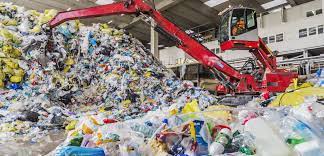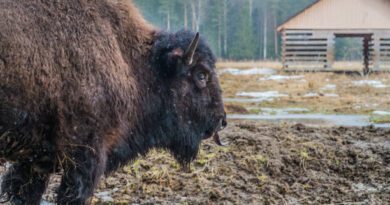Vermi Composting (Manure Pit)
Vermi composting involves the stabilization of organic solid waste through earthworm consumption which converts the material into worm castings. Vermi composting is the result of combined activity of microorganisms and earthworms.
Microbial decomposition of biodegradable organic matter occurs through extracellular enzymatic activities (primary decomposition) whereas decomposition in earthworm occurs in alimentary tract by microorganisms inhabiting the gut (secondary decomposition).
Microbes such as fungi, actinomycetes, protozoa etc. are reported to inhabit the gut of earthworms. Ingested feed substrates are subjected to grinding in the interior part of the worms gut (gizzard) resulting in particle size reduction.
Vermitechnology, a tripartite system which involves biomass, microbes and earthworms is influenced by the biotic factors such as temperature, moisture, aeration etc. Microbial ecology changes according to change of a biotic factor in the biomass but decomposition never ceases.
Conditions unfavorable to aerobic decomposition result in mortality of earthworms and subsequently no Vermi composting occurs. Hence, preprocessing of the waste as well as providing favorable environmental condition is necessary for Vermi composting.
The Vermi compost is relatively more stabilised and harmonises with soil system without any ill effect. Unfavorable conditions such as particle size of biomass and extent of its decomposition, very large temperature increase, anaerobic condition, toxicity of decomposition products etc. influence activity of worms.
The worm species that are commonly used in Vermi composting are: two exotic varieties (Eisenia foetida and Eudrilus euginiae) and one indigenous variety (Lampito mauritii). It is recommended that local variety of worms which consume garbage should be used to the extent possible. 50 kg worms give 50kg manure per day.
Read Also : Household Level Composting (Manure Pit)
These worms are known to survive in the moisture range of 20-80% and the temperature range of 20 – 40°C. The worms do not survive in pure organic substrates containing more that 40% fermentable organic substances.
Hence fresh waste is commonly mixed with partially or fully stabilized waste before it is subjected to Vermi composting.
Vermi composting may be done using compost beds as well as tanks at both household and community levels.

Advantages
Conversion of cattle dung and cattle dung based bio gas slurry, kitchen/food waste, and leaves etc (organic solid waste) into high quality organic manure which are otherwise wasted
It is a fast process which requires only 40-45 days as compared to the conventional process
The process is free from foul odour
Complete destruction of weed seeds
Vermi compost contains plant growth and anti fungula elements which lead to high value addition and profitability
Prevents vector breeding
Prevents insanitary conditions
The technology is simple and it is easy to adopt and replicate
Requires very little land area.
Applicability
Applicability is in household community and mini commercial scale.
Advantages of Composting
By proper decomposition, biodegradable waste gets converted into good quality organic manure whereby waste is turned into wealth
Prevents vector breeding and breeding of rodents
In aerobic composting process considerable heat is generated, resulting in destruction of pathogens and weed seeds
Insanitary conditions arising out of solid waste are removed and aesthetically, environment looks neat and clean.
In conclusion, composting is the controlled aerobic decomposition of organic matter by the action of microorganisms and small invertebrates. The process is controlled by making the environmental conditions optimum for the waste decomposers to thrive.
The rate of compost formation is controlled by the composition and constituents of the materials i.e. their carbon/nitrogen (C/N) ratio, the temperature, the moisture content and the amount of air.
The C/N ratio is very important for the process to be efficient. The microorganisms require carbon as an energy source and nitrogen for the synthesis of some proteins. Moisture content greatly influences the composting process. The microbes need the moisture to perform their metabolic functions.
If the waste becomes too dry the composting is not favored. If however there is too much moisture then it is possible that it may displace the air in the compost heap depriving the organisms of oxygen and drowning them.
Read Also : Community Level Composting (Manure Pit)
A high temperature is desirable for the elimination of pathogenic organisms. However, if temperatures are too high, above 75oC then the organisms necessary to complete the composting process are destroyed.
Optimum temperatures for the process are in the range of 50-60oC with the ideal being 60oC. Aeration also is a very important and the quantity of air needs to be properly controlled when composting.
If there is insufficient oxygen the aerobes will begin to die and will be replaced by anaerobes. This will slow the process, produce odors and also highly flammable methane gas. Air can be incorporated by churning the compost.



